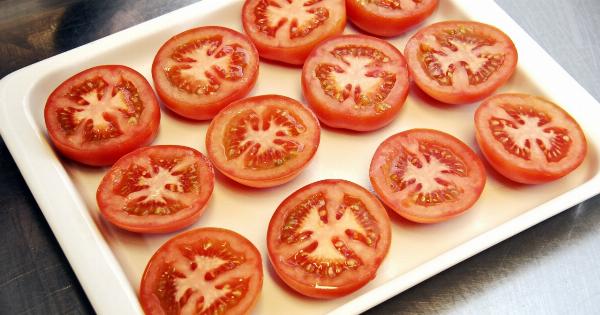Balsamic vinegar is a delicious, flavorful condiment that has been used for centuries in Italian cuisine. Made from a reduction of cooked grape juice, balsamic vinegar has a deep, rich flavor that is slightly sweet and tangy.
It is commonly used in salad dressings, marinades, and sauces, and can also be drizzled over fruits and vegetables or used as a dipping sauce for bread. In addition to its delicious taste, balsamic vinegar also offers a range of health benefits.
What is Balsamic Vinegar?
Balsamic vinegar is a type of vinegar that is made from grape must. Grape must is freshly crushed grape juice that includes the skins, seeds, and stems of the grapes.
The must is cooked slowly over low heat until it reduces and thickens, and then it is left to age in wooden barrels. The barrels are made from various types of wood, including oak, cherry, chestnut, and ash, which can all contribute to the flavor of the vinegar.
The aging process can range from several months to several years, depending on the desired flavor and consistency.
The Flavor Profile of Balsamic Vinegar
Balsamic vinegar has a complex flavor profile that includes sweet, sour, and fruity notes. It has a rich, dark color and a syrupy consistency.
The sweetness comes from the natural sugars in the grape must, which are concentrated during the cooking process. The sourness comes from the vinegar, which is added to the must to start the fermentation process. The fruitiness comes from the grapes themselves, and can range from grapey to slightly tart.
The flavor of the vinegar can also be influenced by the type of wood used in the barrels, as well as the length of the aging process.
Health Benefits of Balsamic Vinegar
Balsamic vinegar is not only delicious, but it is also a healthy addition to your diet. It is low in calories and fat, and contains antioxidants and nutrients that can help to improve your overall health.
Here are some of the key health benefits of balsamic vinegar:.
- Antioxidants: Balsamic vinegar contains antioxidants that can help to protect your body against free radical damage. Free radicals are unstable molecules that can damage your cells and contribute to a range of health problems, including cancer, heart disease, and aging.
- Lower Blood Sugar: Balsamic vinegar may help to lower blood sugar levels and improve insulin sensitivity. This can be beneficial for people with diabetes or those at risk of developing the disease.
- Reduce Cholesterol: Balsamic vinegar has been found to have cholesterol-lowering effects, which can reduce the risk of heart disease and stroke.
- Improve Digestion: Balsamic vinegar contains acetic acid, which can help to improve digestion by promoting the growth of healthy bacteria in the gut.
- Boost Immune System: Balsamic vinegar contains vitamins, minerals, and amino acids that can help to boost your immune system and protect against infections.
How to Use Balsamic Vinegar in Cooking
Balsamic vinegar is a versatile ingredient that can be used in a variety of dishes. Here are some of the ways you can use balsamic vinegar in your cooking:.
- Salad Dressings: Balsamic vinegar makes a delicious base for salad dressings. Combine it with olive oil, garlic, and herbs for a tasty and healthy dressing.
- Marinades: Balsamic vinegar can be used to marinate meats, vegetables, and tofu. It adds flavor and helps to tenderize the food.
- Sauces: Balsamic vinegar can be used to make sauces for meats and vegetables. Combine it with broth, herbs, and cornstarch for a delicious and flavorful sauce.
- Dipping Sauce: Balsamic vinegar can be used as a dipping sauce for bread, vegetables, and fruits. Combine it with olive oil and herbs for a delicious and healthy dip.
Choosing the Best Balsamic Vinegar
When choosing balsamic vinegar, it is important to look for high-quality, authentic products. Here are some tips to help you choose the best balsamic vinegar:.
- Look for Traditional Balsamic Vinegar: Traditional balsamic vinegar is made using traditional methods and ages for at least 12 years. Look for vinegar that has been certified by the Consorzio Tutela Aceto Balsamico di Modena, which ensures that it is made according to strict standards.
- Check the Label: Look for vinegar that is made with 100% grape must, with no additives or preservatives. The label should also indicate the aging process and the type of wood used in the barrels.
- Taste Test: If possible, taste the vinegar before you buy it. Quality balsamic vinegar should have a rich, complex flavor with a balance of sweet, sour, and fruity notes.
In Conclusion
Balsamic vinegar is a delicious and healthy alternative to traditional vinegar. Its rich, complex flavor and range of health benefits make it a must-have ingredient in any kitchen.
Whether you are using it to dress a salad, marinate meats, or make a sauce, balsamic vinegar is a versatile ingredient that can add flavor and nutrition to any dish.































